Archives: Documents
-
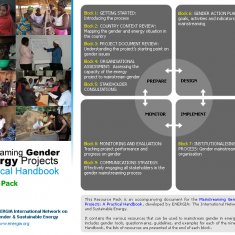
Mainstreaming Gender in Energy Projects: Resource Pack
The Resource Pack is an accompanying document for the Mainstreaming Gender in Energy Projects: A Practical Handbook, developed by ENERGIA. The Resource Pack on mainstreaming gender in energy projects provides practical tools and examples for energy projects that show how to undertake gender mainstreaming systematically. It contains various resources that can be used to mainstream…
-
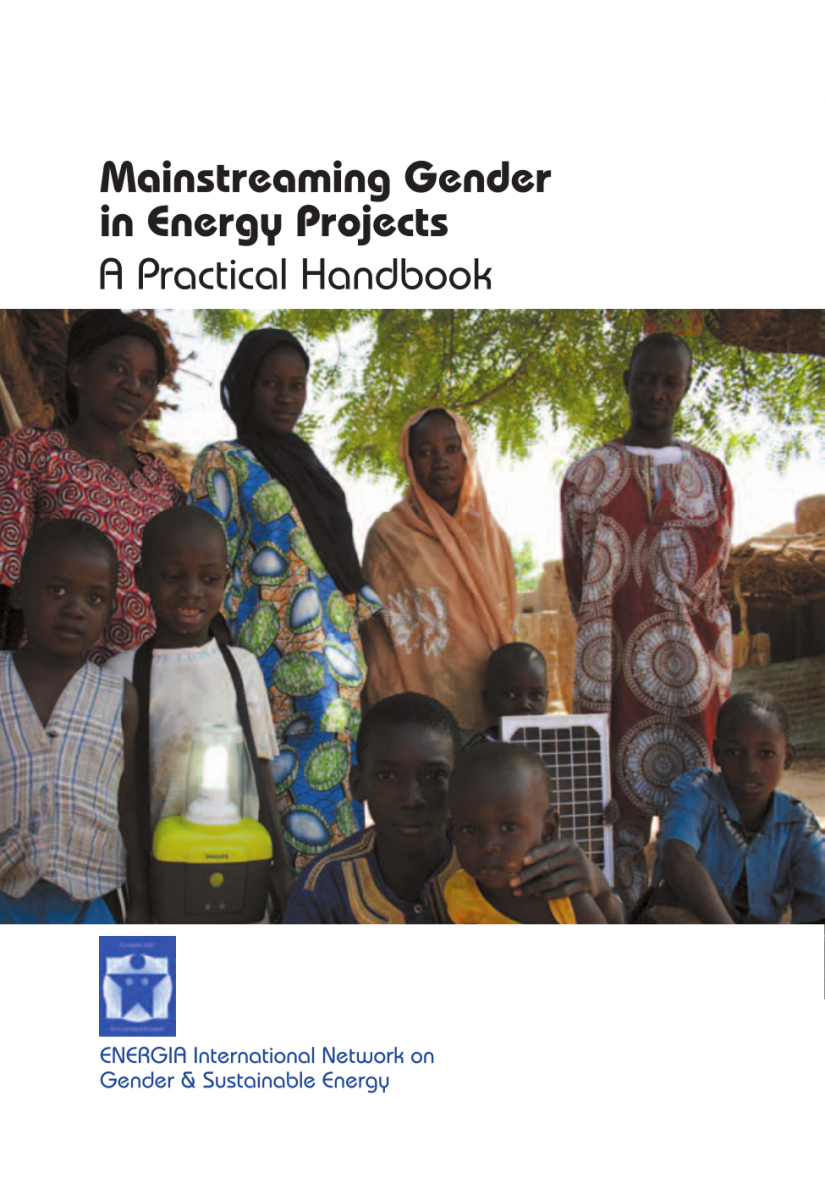
Mainstreaming Gender in Energy Projects: A Practical Handbook
This Handbook on mainstreaming gender in energy projects seeks to provide guidance, practical tools and examples for energy projects that show how to undertake gender mainstreaming systematically. TheHandbook is a product of an ENERGIA initiative on Gender in Energy Projects and is based on ENERGIA’s work on gender mainstreaming since the 1990s, including gender and…
-
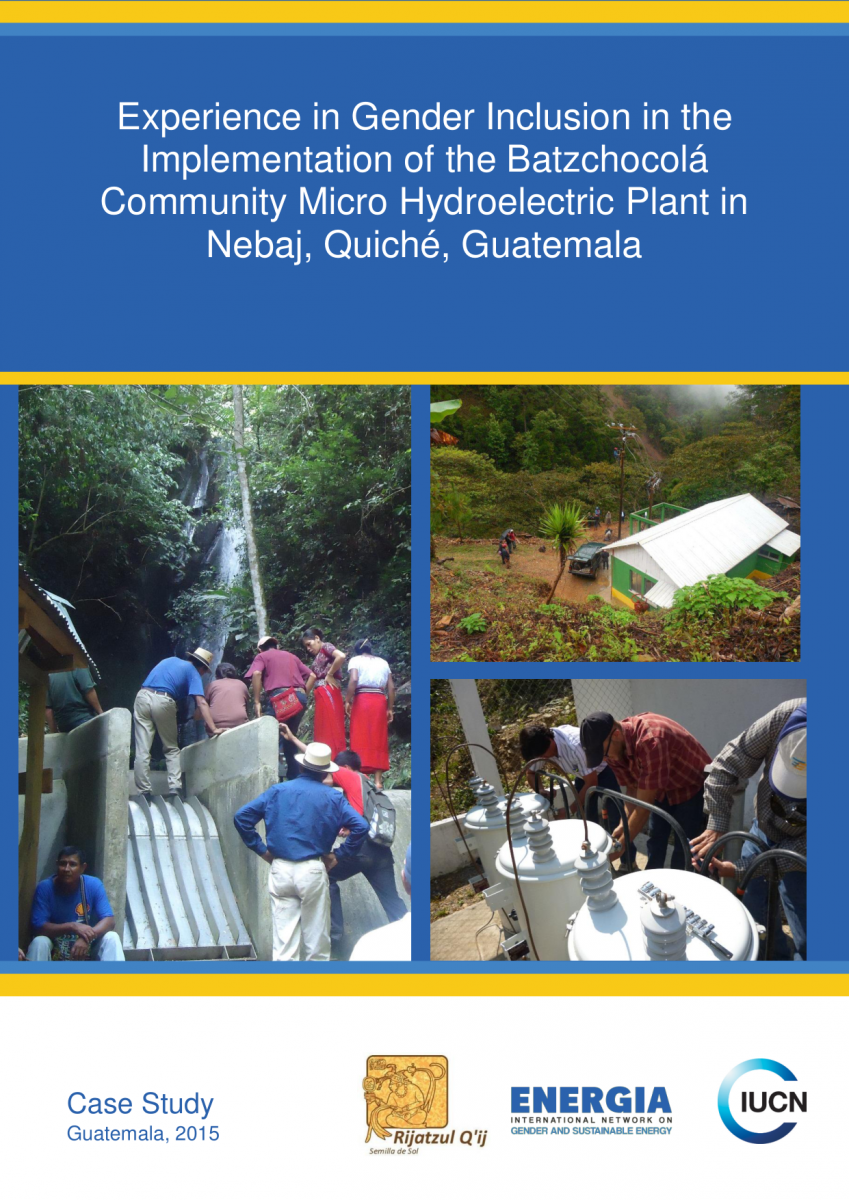
Experience in Gender Inclusion in the Implementation of the Batzchocolá Community Micro Hydroelectric Plant in Nebaj, Quiché, Guatemala
“Experience in Gender Inclusion in the Implementation of the Batzchocolá Community Micro Hydroelectric Plant in Nebaj, Quiché, Guatemala” highlights the results in terms of gender equality obtained by Semilla de Sol and the Hydroelectric Association for the Integral Development of Northern Quiche (ASHDINQUI), a non-profit social and community venture that began with the construction of…
-
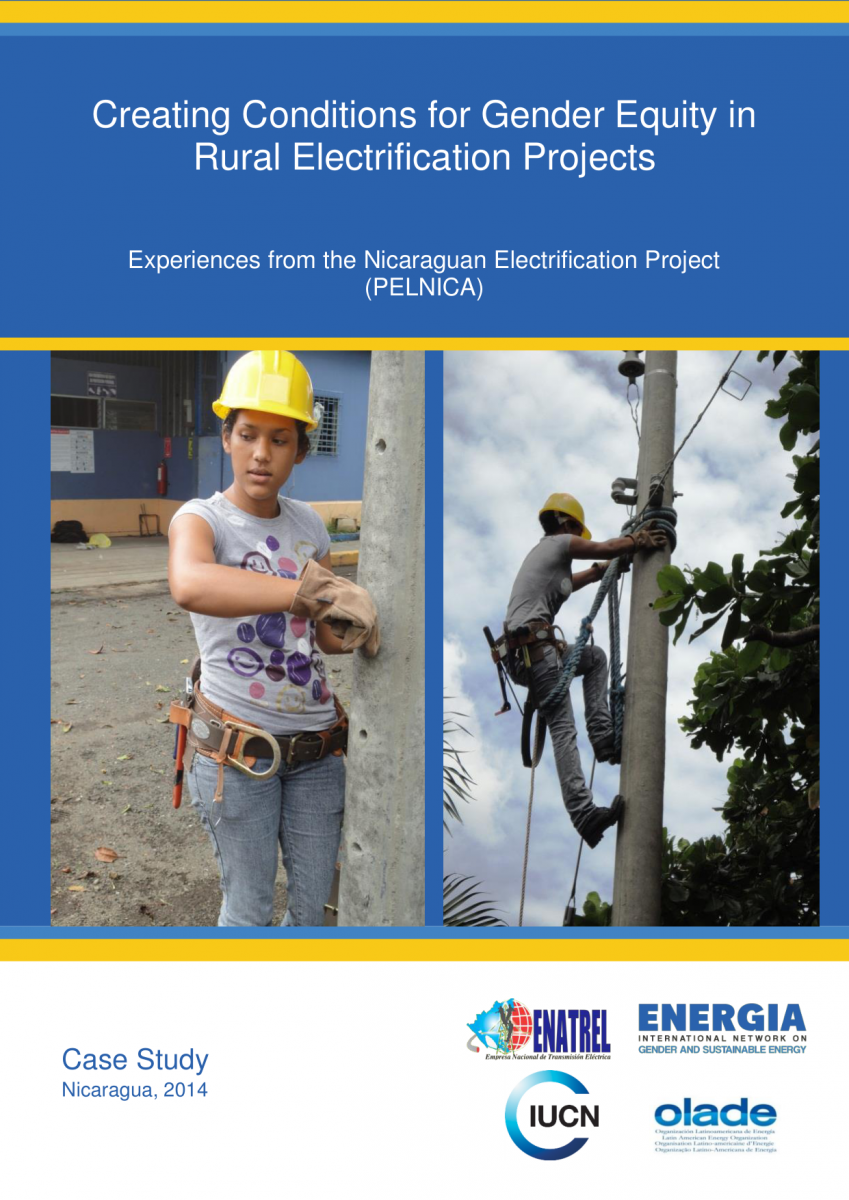
Creating Conditions for Gender Equity in Rural Electrification Projects: Experiences from the Nicaraguan Electrification Project (PELNICA)
“Creating Conditions for Gender Equity in Rural Energy Projects: Experience in the Nicaraguan Electrification Project, PELNICA” highlights the results for gender equality obtained through the PELNICA initiative, and shares some reflections on how this six-year process has been able to influence the design and implementation of other similar projects in Nicaragua, as well as expand…
-
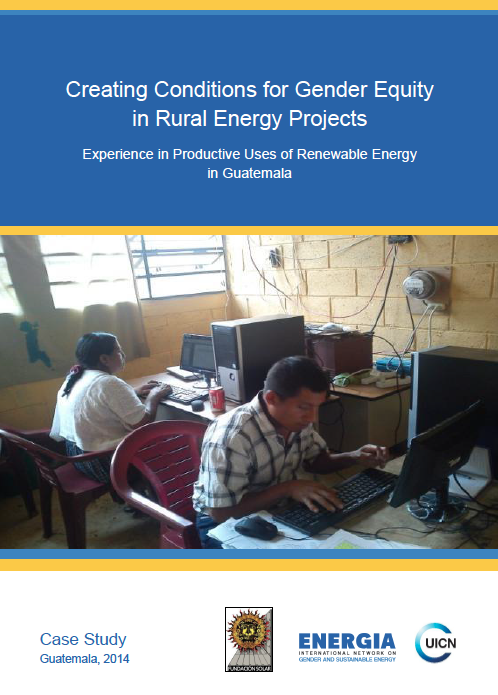
Creating Conditions for Gender Equity in Rural Energy Projects: Experience in Productive Uses of Renewable Energy in Guatemala
initiative. “Creating Conditions for Gender Equity in Rural Energy Projects: Experience in Productive Uses of Renewable Energy in Guatemala” has been undertaken by Fundación Solar (Solar Foundation), a private development organization established in Guatemala in 1993. This case study documents the ways in which an energy project, in this case for climate change mitigation, can…
-
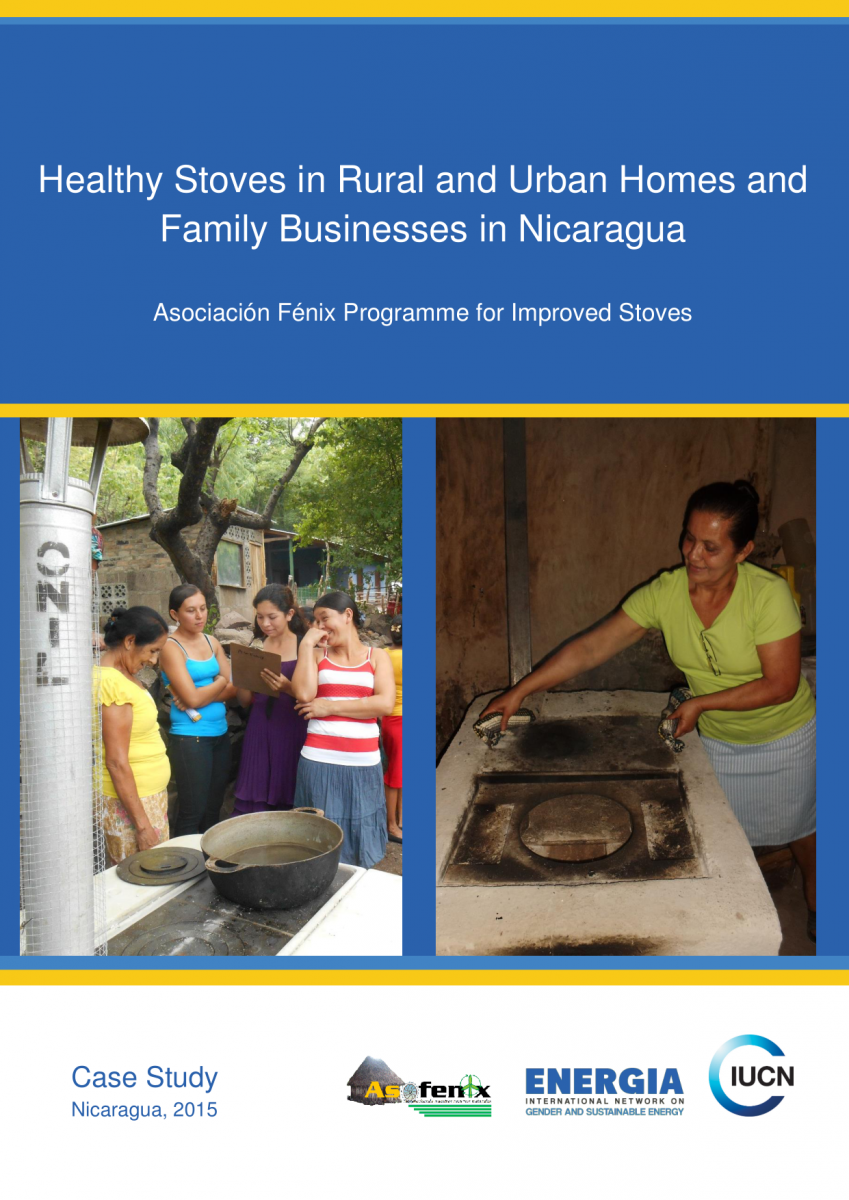
Healthy Stoves in Rural and Urban Homes and Family Businesses in Nicaragua: Asociación Fénix Programme for Improved Stoves
“Healthy stoves in rural homes and family businesses in Nicaragua” shows the results in terms of gender equality obtained by Asociación Fénix, a Nicaraguan non-governmental and non-profit organisation established in 2001 that works to promote renewable energy sources and responsible use of natural resources to reduce climate change. This study describes the process of a…
-
Integrating Gender Considerations into Energy Operations
In the energy sector, the gender dimensions of access to services, access to benefits, and exposure to risks and benefits, are being increasingly recognized as important elements to be considered for effective policy making and project design. In practice, this translates into integrating a gender perspective throughout the operational cycle to improve gender equity in…
-
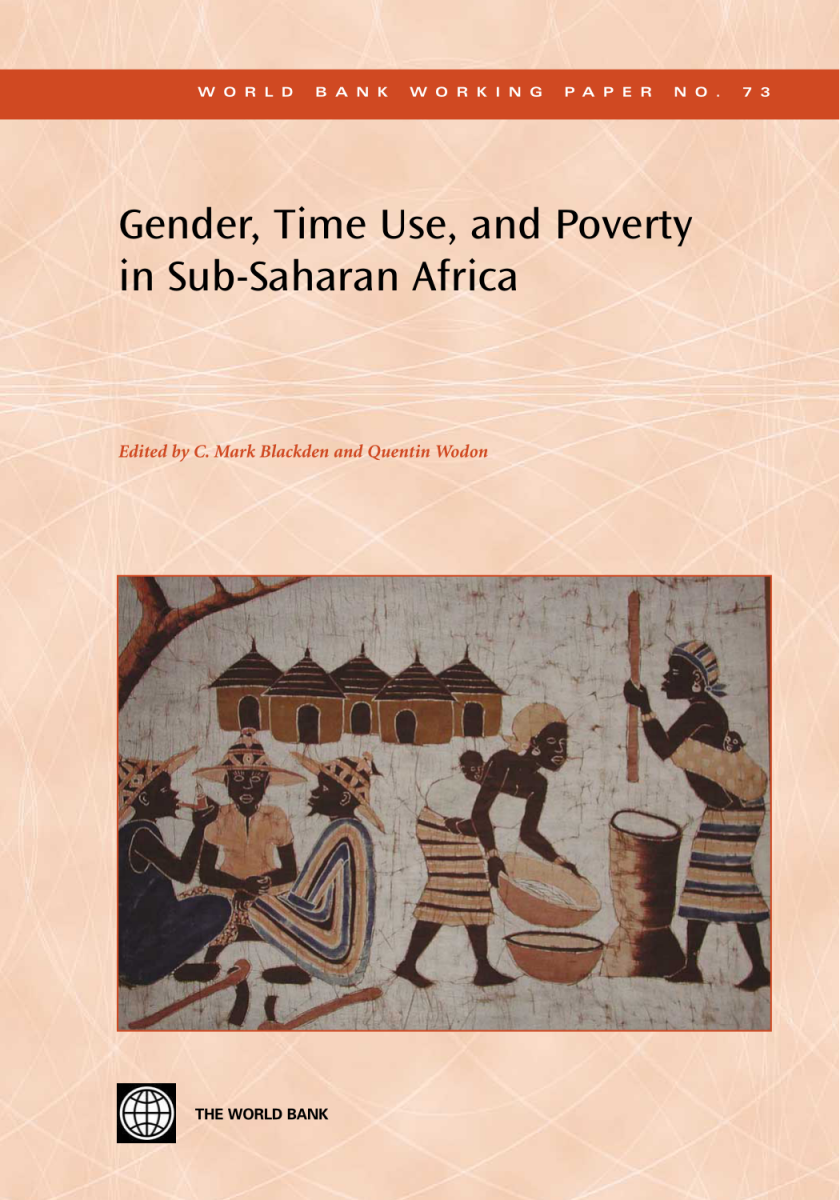
Gender, Time Use, and Poverty in Sub-Saharan Africa
The papers in this volume examine the links between gender, time use, and poverty in Sub-Saharan Africa. They contribute to a broader definition of poverty to include “time poverty,” and to a broader definition of work to include household work. The papers present a conceptual framework linking both market and household work, review some of…
-
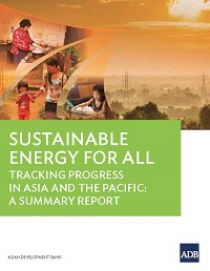
Sustainable Energy for All Status Report: Tracking Progress in Asia and the Pacific
This report reviews the early work of the AP-SE4All, and the conditions of the developing Asia and Pacific countries it is working with. It charts preliminary progress, and assesses the policy environment which the work to achieve the SE4All targets will operate within. Uniquely, this report highlights the nexus of issues involving women, children, and…
-
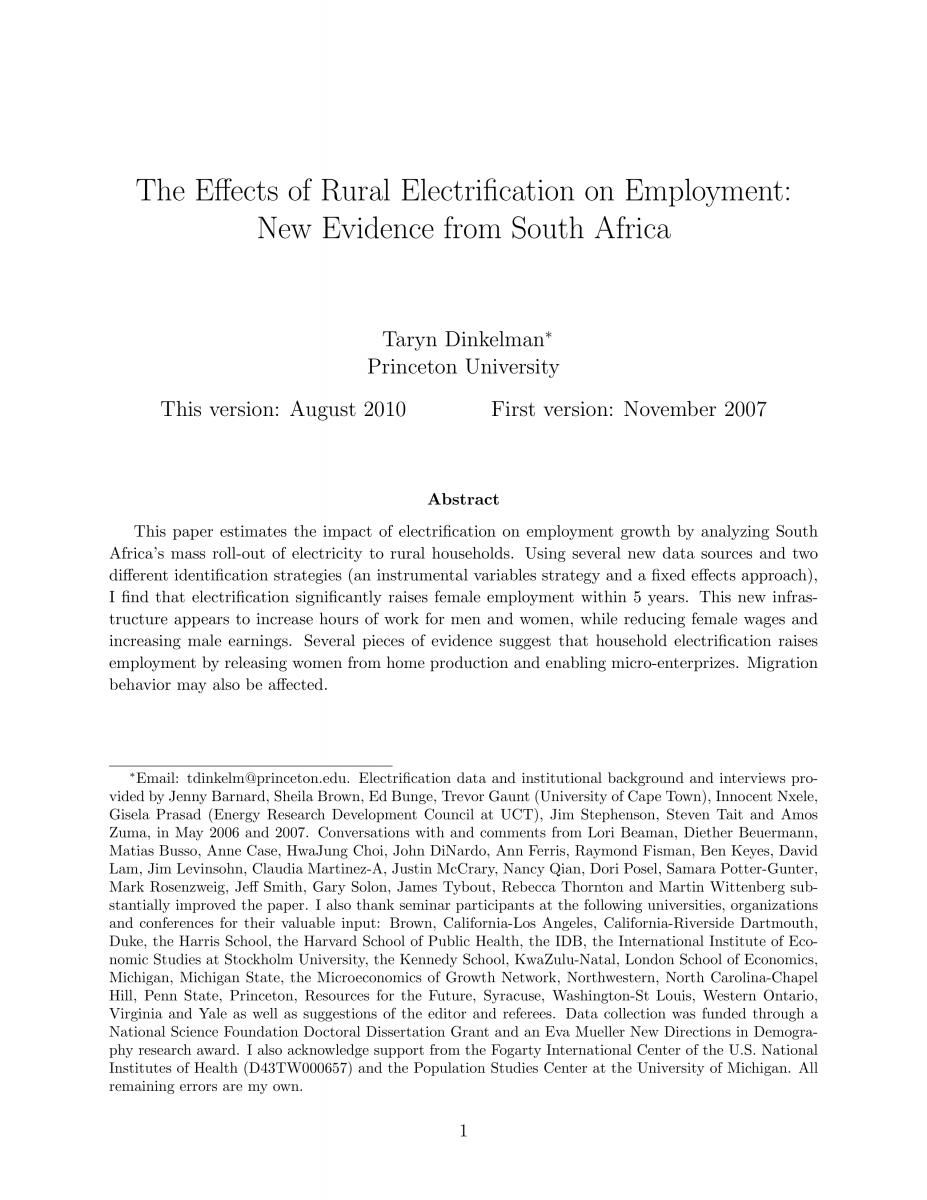
The effects of rural electrification on employment: New evidence from South Africa
This paper estimates the impact of electri cation on employment growth by analyzing South Africa’s mass roll-out of electricity to rural households. Using several new data sources and two di erent identi cation strategies (an instrumental variables strategy and a fi xed e ffects approach), I f nd that electri cation signi cantly raises female employment within 5 years. This new infrastructure appears…
-
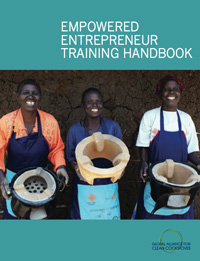
Empowered Entrepreneur Training Handbook
The Empowered Entrepreneur Training Handbook provides six days of business skills, empowerment, and leadership training curricula and tools that can be implemented to better support the women sales agents and entrepreneurs with whom you work. Thoughtful planning and preparation by organizers is required in order to successfully implement this training. Trainers and implementing organizations should…
-
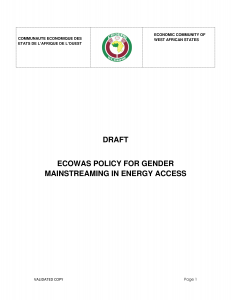
ECOWAS policy for gender mainstreaming in energy access
Countries of the Economic Community of West African States (ECOWAS), represented by the Ministries of Energy, validated on 4-5 June 2015 in Dakar, Senegal, the regional Policy to mainstream gender in all energy programmes, projects and initiatives implemented in the Member States, including large scale energy infrastructure projects and investments. Described as “revolutionary” by the…

